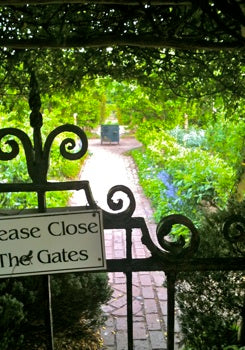When will the pollen season end? The pollen season is different for different plants and, put simply, it lasts from early spring to late autumn:
Tree Pollen = Mid to late March to mid-May
Grass Pollen = Mid-May to July
Weed Pollen = End of June to September
With global warming on the horizon, it might be that our pollen season will get longer and longer. Here’s what to expect:
Mid to late March to mid-May
First pollen each year is the tree pollen, from mid to late March to mid-May. The season for each tree species lasts three to four weeks. These trees (listed from early to late with respect to their season) are associated with the typical allergy symptoms:
- Hazel,
- Alder,
- Poplar,
- Ash,
- Birch and
- Oak.
If there was a harsh winter, then the start of the pollen season will be delayed.
Mid-May to July
Next is the grass pollen season, which begins in mid-May and ends in July. Grass pollen allergy is more common than a tree or weed pollen allergy. Grass pollen grains are relatively large and tend to cause a blocked nose and sore eyes more than irritate the lungs. Foxtail, oat, dogstail, timothy and meadow grasses are most usually associated with allergy in the UK. The grasses release their pollen from April to July.
End of June to September
Finally, the weed pollen season overlaps and extends beyond the grass pollen season - from the end of June to September, the exact duration depending on the species of weed. Dock weed has the longest pollen season. Other weeds associated with pollen allergy include nettle, sorrel and ragweed.
Note that brightly coloured garden plants, like roses, are not much associated with an allergy because their pollen grains are too heavy to be widely dispersed by the wind (they are distributed from plant to plant by insects like bees that are attracted to the bright colours).
The weather also affects the pollen count in the air on a particular day. There is more on a sunny day, less on a rainy day. Cloudy days are associated with a build-up of pollen in plants that are released as soon as the weather improves.
Time of day
The time of day also affects the likelihood of encountering pollen allergens. Be aware that
- Grass releases pollen from around 7 in the morning - later if the ground is damp. Though some grass species don’t release their pollen until the afternoon.
- Birch trees release their pollen between noon and 6 pm.
- Warm air lifts pollen high into the atmosphere during the day. When air cools down, as dusk falls, pollen starts to descend. You may well be exposed to one of these ‘pollen showers’ in the early hours of the morning if you sleep with a window open.
These are just guidelines. For more detailed information, see the Met Office chart on typical pollen seasons for different plants. If you have hay fever, you should take pollen forecasts as seriously as the weather forecast and know when to step up your allergen avoidance precautions. Good ideas include:
- Washing your hair and changing your clothes when you get home
- Wash all of your laundry including clothes and bedding, with hypoallergenic laundry detergent
- Clean your home with allergy friendly cleaning products
- Use a mask or scarf to cover your nose or a dab of Vaseline inside each nostril
- Consider investing in a high-quality air purifier to filter pollen grains out of indoor air
If you have hay fever, you are allergic to pollen - the microscopic grain released by the male part of a flower. So you’ll be only too familiar with the following allergy symptoms:
- Sneezing
- Itchy nose, mouth, throat, eyes
- Watery eyes
- Blocked or streaming nose
Allergen avoidance is not easy when it comes to pollen, but it’s not impossible. Pollen grains are small and light (ranging in size from 0.5 to 100 microns) and they are very widely dispersed - so pollen allergy is as much a problem in the city as in the country. Indeed, pollen grains have even been found several miles out at sea - that’s how far they can travel. It’s really useful to be aware of exactly what type of pollen you are allergic to (this can be done by skin prick tests at an allergy clinic such as the London Allergy and Immunology Centre) and when the pollen season starts and finishes.




